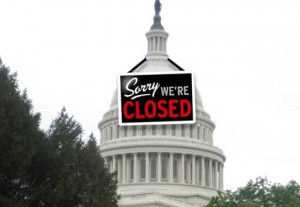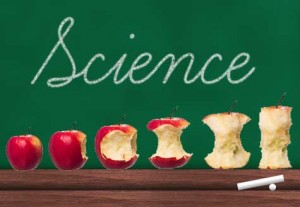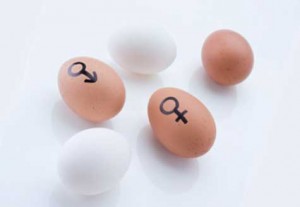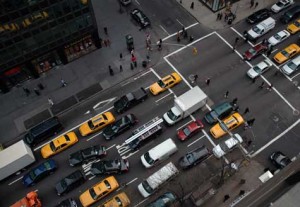The word “top” always proves fungible in that modern media creation, “the list,” but this year Miller-McCune is adding a pinch of rigor to our own efforts to craft a Top 10 list. We’re drawing on the stories we published in 2011 that attracted the most web visitors. That’s not as elegant as some of the methodologies we’ve tried in the past, and traffic counts are fraught since gaining web visitors can verge into the black arts. Nonetheless, by accident or design, this year’s traffic winners tend to a present a balanced picture of the types of stories we favor at Miller-McCune.
Besides our home page, the most popular item at miller-mccune.com overall wasn’t a written story, but Jai Ranganathan’s podcast (“Japan’s Earthquake: Deciphering the Fury”) on the seismic science underlying Japan’s deadly earthquake and tsunami of last March. The audio story, in which quake expert Chen Ji from the University of California, Santa Barbara, helps Jai, himself an ecologist, decipher what was going on beneath our feet. Ranganathan no longer does the “Curiouser & Curiouser” podcast, but with fellow ecologist Jarrett Byrnes has co-founded a crowdfunding site for science projects, the SciFund Challenge.
But for the readers out there, let’s look at our Top 10 stories:
1. Slugging — The People’s Transit
How bad do you want to drive in the carpool lane? Bad enough to pick up a stranger who shares your destination? That’s the underlying tension of “slugging,” a homegrown commuting practice in Washington, D.C., and a few other American cities that Emily Badger explained for us first in the March-April issue of Miller-McCune’s print magazine and then online. Although most of the slugs turn out to be civil servants, the scheme is essentially a private solution to highway gridlock. Might this peculiar transportation offer something more? “Society always reaches first for the infrastructure fix — the costly highway expansion, the new route for the metro rail,” Badger wrote. “But what if government could just nudge more people to do what they’ve done here, creating their own commuting cure within the existing system?”

2. Sexy News Anchors Distract Male Viewers
We’re no Huffington Post, but we do know that a tinge of sex always spices up traffic (although apparently not as much as a tinge of traffic itself). Here, staff writer Tom Jacobs reported on research from Indiana University that found while an attractive female news anchor may get a rise out or ratings, they also keep male viewers from retaining much of what they just heard. While the effect was less pronounced, for women the opposite was true — they retained more. Because we’re Miller-McCune, we couldn’t just let something about sex be about sex: “The study provides evidence for a basic theory of evolutionary psychology: when it comes to processing information, visual tends to trump verbal.”

3. What Does a U.S. Government Shutdown Mean?
This Idea Lobby post by Emily Badger might seem like a quickly dated listicle that would be meaningless after the U.S. government avoided shutting down last April. And viewership definitely peaked as the donkeys and elephants were glowering across a budget divide that if not closed would affect services as varied as issuing passports, park admissions, and collecting poo at the National Zoo. And while it did seem that way, subsequent antics in the District of Columbia suggest that stories about what Americans can kiss away if partisan towel-snapping doesn’t abate will remain fresh well into the new year.

4. Breastfeeding Women Viewed
as Less Competent
Tom Jacobs strikes again — and you’ll see his byline twice more before we close — with another piece from our Findings section on breaking research. This time he examined the backlash against women who breastfeed, citing a study that found both men and women tended to see breastfeeding mothers as somehow less competent as an employee or desirable as a dinner companion. The post set off a lively debate among our readers, many of whom defended their own choice to stay off the bottle.

5. Dip in Arts Attendance Tied
to Decline of the Omnivore
Tom again, this time writing about one of his favorite topics, the intersection of arts, intelligence, and policy. This time he looks at a National Endowment for the Arts-funded study that determined that a shrinking pool of Americans who regularly participate in a broad range of cultural activities, termed as “omnivores,” drives down attendance at the arts events overall. (It’s worth noting that in this nomenclature, omnivores can be distinguished from “highbrows,” who limit their participation to the so-called high arts.) While that might seem an obvious correlation, the study runs counter to other “obvious” conclusions that the declines are related to age or generation.

6. It’s the (Alleged) End of the World
as We Know It
Most of what we cover at Miller-McCune are things you didn’t know before and should hear about. But in Skeptic’s Café, Peter Nardi, an emeritus professor of sociology at California’s Pitzer College, routinely tells us about things we already know that we shouldn’t. In this column, he took on the various predictions making the rounds that the world would end either this year — not so far and we’ve only a few hours left — or next.

7. Science Leaches Out of Science Class
This Idea Lobby post is kind of the flip side of Skeptics Café: it deals with something we do know, that’s backed up by science, but which many people try to avoid. No, we’re not talking about diet. We’re addressing evolution. Here, Emily Badger reported on a survey of U.S. public school biology instructors that found a majority of teachers were at best tepid in defending evolution in the classroom. “We concluded that, by and large, it was the teachers that were really making policy at street level,” Badger quoted Eric Plutzer, one of the Penn State political scientists who conducted the study. “All of these well-publicized battles in Kansas and Texas and Ohio and elsewhere about what these content standards should include really have very little impact on teachers.” Not everyone takes such tidings lying down. In May, we presented deep-sea researcher Craig McLain’s tales from the 2011 Darwin Day Road Show, in which scientists from the National Evolutionary Synthesis Center head off to schools in rural America to make the case, face-to-face, for evolutionary biology.

8. Comet Theory Comes Crashing to Earth
Speaking of theories under fire, investigative science journalist Rex Dalton examined an elegant archaeological hypothesis about a comet stopping the spread of the Clovis people in North America some 13,000 years ago. But elegance can’t replace evidence, and as Dalton explained, data irregularity, resume padding and an apparent inability to admit being wrong have tarnished the reputations of some very eminent scientists (and one poseur) still invested in the theory.

9. ‘Gaydar’ Accuracy Varies With Women’s Fertility Cycle
The last appearance of Tom Jacobs here finds him reporting that women are better at sussing out a man’s (but not a woman’s) sexual orientation as they approach peak fertility. Gaydar studies have long been a fertile, ahem, field for our Findings column: a 2009 post on whether gaydar was real was one of that year’s most popular stories, too.

10. A Road Less Traveled
The first of the year proved a good day to capture reader’s attention about traveling, as former staff writer Melinda Burns’ look at the decline of passenger travel in the industrialized world, which researchers explained has been stagnant for nearly a decade. Researchers discussed a number of possible reasons for the arrival of Peak Travel, including costly fuels, saturated roads, the push to reduce carbon emissions, and an aging population. While growth in travel in the developing world may offset the trend globally, the late Lee Schipper said gridlock will probably reign everywhere. “My basic thesis is, ‘There ain’t room on the road.’ … Yes, fuel economy is really important, and, yes, hybrid cars will help. But even a car that generates no CO2 still generates a traffic problem. Sadly, what is going to restrain car use the most is that you can’t move.”

Sign up for the free Miller-McCune.com e-newsletter.
“Like” Miller-McCune on Facebook.
Follow Miller-McCune on Twitter.
Add Miller-McCune.com news to your site.




